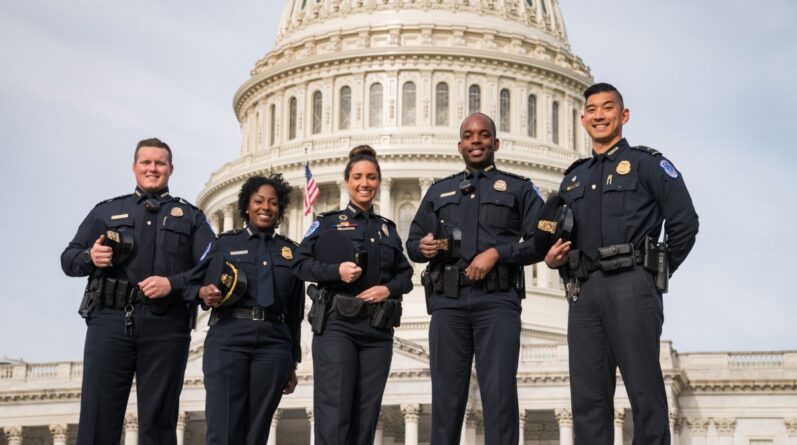
There are many stereotypes around them inspired by Hollywood. In films, American police officers are shown almost as warriors with a constant stream of unsolved cases and crimes. In this article, we decided to figure out where the truth is and where the lies are and tell how things really are. Read today in USA.ONE magazine:
How do American police officers live and how much do they earn? How do they become one? 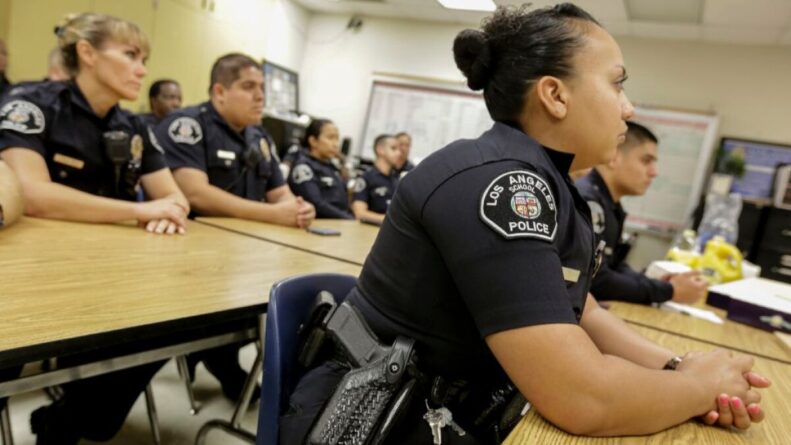
 photo: ca-times.brightspotcdn.com
photo: ca-times.brightspotcdn.com
Firstly, joining the ranks of the US police is not the same as in Russia. In order to even occupy the position of lieutenant in America, you need to study at a university and obtain at least a bachelor's degree. In Russia, secondary education is sufficient. As you understand, it will be even more difficult for a foreigner to get into the American police: you will have to prove for a long time the need to join their ranks and loyalty to the state.
Police training in the United States takes place at police academies, where students receive the necessary knowledge and skills to work in the police. These include:
- Classical Lessons: Students receive classroom instruction that introduces them to the basics of law, police procedures, ethics, use of force rules, criminal psychology, and other police-related topics. They study laws, citizens' rights, and the basic principles governing police work.
- Physical Training: Training at the academy includes intense physical training. Students engage in exercises to develop strength, endurance, flexibility and coordination. They train in running, swimming, pull-ups, push-ups and other physical exercises to ensure they are prepared for the physical challenges of their service.
- Tactical Training: Students learn the tactics of police operations, including arrests, searches, detentions, crowd control, etc. They gain knowledge of safety in the performance of their duties and develop the skills to make quick and informed decisions in stressful situations.
- Practical Training: Students undergo hands-on training to apply their acquired knowledge and skills in practice. They conduct training exercises, simulated police situations, role-playing games and other forms of hands-on training to learn how to effectively respond to a variety of situations they may encounter while on duty.
- Shooting and Weapons Training: Students receive training in shooting and gun safety. They learn aiming techniques, gun control, safety rules and laws regarding the use of firearms. Training includes practical shooting at a shooting range, where students learn to control the weapon and shoot accurately and safely.
- Simulations and Hands-On Exercises: Students participate in simulations and hands-on exercises to simulate real-life police situations. They can train in handling dispatch calls, interacting with intruders, or through live role-playing games to develop their communication skills, ability to make decisions, and respond to changing circumstances.
- Communication and Interpersonal Skills Training: Police officers must be good trained in the field of communication, interaction with society and conflict resolution. Academy training includes training in effective communication, stress management, listening skills and emotional intelligence.
- Final Exams and Assessments: At the end of their studies at the academy, students take final exams that test their knowledge and skills acquired during their studies. These exams may include written tests, practical tests, and physical fitness assessments.
After successfully completing training at the police academy, students receive a certificate of completion of the academy and can be invited to serve in the police. They then typically undergo a probationary period, during which they work under the supervision of experienced police officers to put their knowledge and skills into practice.
Pros of Working as a Police Officer in the USA 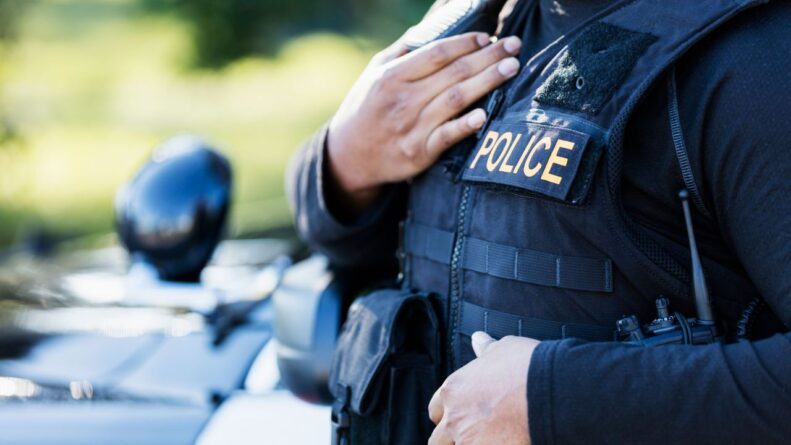
 photo: cnn.com
photo: cnn.com
Before receiving such a job, candidates undergo lengthy testing, including a polygraph, psychological tests, physical tests and other studies. There is quite a lot of demand for every available police position. The thing is that they have quite a lot of bonuses: for example, health insurance for the whole family, retirement with half salary after 22 years of service. Plus, many states even offer housing discounts. It is important to note that police officers may receive additional bonuses and compensation for working at night, weekends, shifts, overtime and in dangerous situations.
Secondly, the police actually get paid pretty well. Of course, it all depends on the state where he works. But, on average, his salary will be around $50,000-$70,000, but it can be higher — $65,000 — $80.ooo per year. The lowest states for police pay were Mississippi ($36,290), Arkansas ($40,570) and Louisiana ($42,470). Although, for example, in California they receive about $105,000 a year, which is quite good.
Other benefits of being a police officer in the USA that attract many people include:
- Service to the public: Police officers play an important role in society by upholding the law and ensuring the safety of citizens. Being a police officer provides an opportunity to help people, protect rights and prevent crimes.
- Variety of Tasks: A police officer gets a variety of tasks in his job. They may be involved in crime investigation, public order, victim assistance, street patrol, incident response, and other situations requiring police intervention.
- Career Opportunities: Being a police officer offers a variety of opportunities for professional growth and development. . Police officers can specialize in various areas such as detective work, narcotics, forensics, special operations and others.
- Vocational Training: Police officers are provided with ongoing vocational training and opportunities to develop their skills. This helps them stay up to date with new technologies, legislative changes, and best policing practices.
- Feelings of satisfaction and ownership: Being a police officer can provide a sense of satisfaction from helping others, protecting the community, and preventing crime. Awareness of one's contribution to public safety and involvement in the well-being of the community are important aspects of being a police officer.
Disadvantages of working as police in the USA 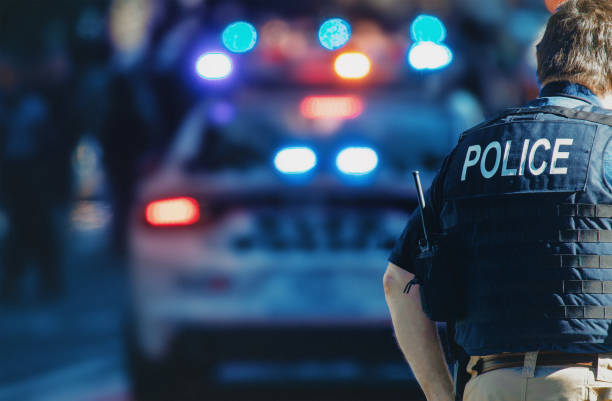
 photo: istockphotos.com
photo: istockphotos.com
Working as a police officer in the USA, like any profession, has its some disadvantages and challenges. Here are some of them:
- Risk and Danger: Police officers face increased levels of risk and danger in their work. They may experience violence, armed criminals, conflict situations and traumatic events. This can have a negative impact on the physical and mental health of police officers.
- Emotional stress: Working as a police officer often involves dealing with victims of crime, violence and tragic events. Police officers may experience emotional strain, stress and trauma from these situations, which can lead to post-traumatic stress disorder (PTSD) and other psychological problems.
- Work Schedules and Flexibility: Police officers often work unusual schedules, including night shifts, weekends, and holidays. This can affect your personal life, family relationships and health. Flexibility and adaptability are required to work under variable conditions and non-standard schedules.
- High Expectations and Public Pressure: Police officers are often subject to high public expectations. They are required to be professional, ethical and provide a high quality service despite the challenges of the job. Criticism and public pressure can place additional psychological stress on police officers.
- Racism and Conflict: In some cases, police officers may face challenges to racism and conflict due to issues of police brutality and mistrust of law enforcement. This can create difficult situations and additional difficulties in working as a police officer.
Interesting facts about police officers in the USA 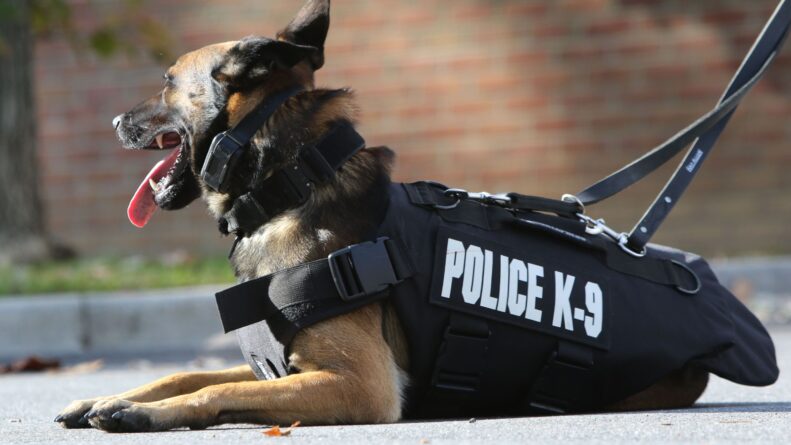
 photo: mdspolice.com
photo: mdspolice.com
In different states and cities, police officers wear different types of uniforms . For example, in some states police officers wear blue uniforms, while in others they wear green, gray or even brown uniforms. This is due to different traditions and preferences of local law enforcement agencies.
Another interesting fact is that in the US police you cannot get a position based on length of service, unlike in the Russian Federation. In order to improve your qualifications, you must undergo additional training at the academy (often lengthy).
Unlike many other countries, the United States does not have a unified national police force. Policing is organized at the local and state levels. This means that police in the United States are divided into many independent law enforcement agencies, each responsible for a specific area.
So, Hollywood was right. Police officers traveling out of their own state cannot carry out their duties in another. That is, if a criminal crosses state lines, other police officers take over the case. By the way, the US police can actually requisition your car during a chase. If for some reason it is damaged, then the state police will pay you compensation.
K-9 (canoforce) units are widespread in the United States, in which specially trained dogs help the police in a number of tasks, such as searching for drugs, catching criminals and ensuring security at public events. Dogs become real partners of police officers.
Interestingly, in America there is a practice called “Partner for a day,” when anyone can write an application to the department and become a companion for a police officer. Of course, he won’t be taken to the hottest spots, but the impressions will definitely remain.
Did you like the article? Share it with your friends on social networks and don’t miss even more materials on our website!